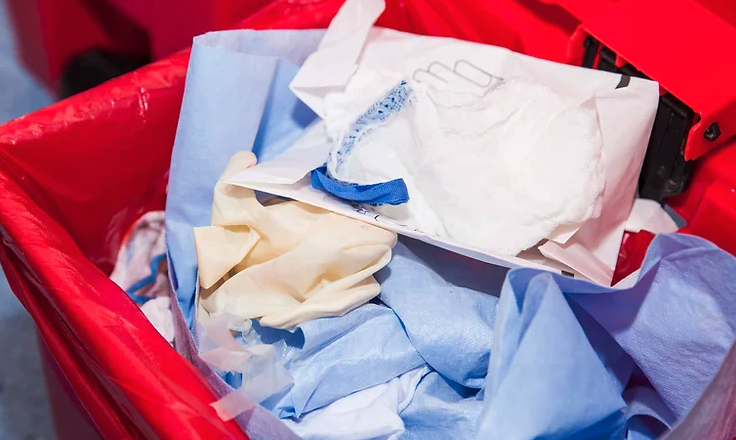Many government agencies have their own definitions for medical waste. They all have different regulatory demands as well. These agencies include Centers for Disease Control (CDC), Occupational Safety and Health Administration (OSHA), U.S. Food and Drug Administration (FDA), and Michigan Department of Environment, Great Lakes, and Energy (EGLE).
The EPA’s Definition of Medical Waste:
Medical waste is a subset of wastes generated at health care facilities, such as hospitals, physicians’ offices, dental practices, blood banks, and veterinary hospitals/clinics, as well as medical research facilities and laboratories. Generally, medical waste is healthcare waste that that may be contaminated by blood, body fluids or other potentially infectious materials and is often referred to as regulated medical waste.
The DOT Defines Medical Waste:
Under DOT rules, regulated medical waste (RMW) is a waste or reusable material suspected or known to contain an infectious substance, and is generated in the diagnosis, treatment, immunization, or biomedical research of humans or animals.
#SuperiorMedicalWasteDisposal #MedicalWaste
